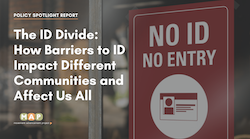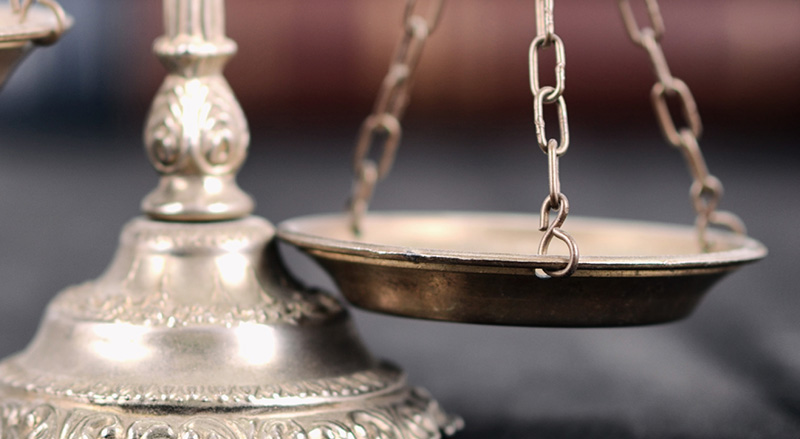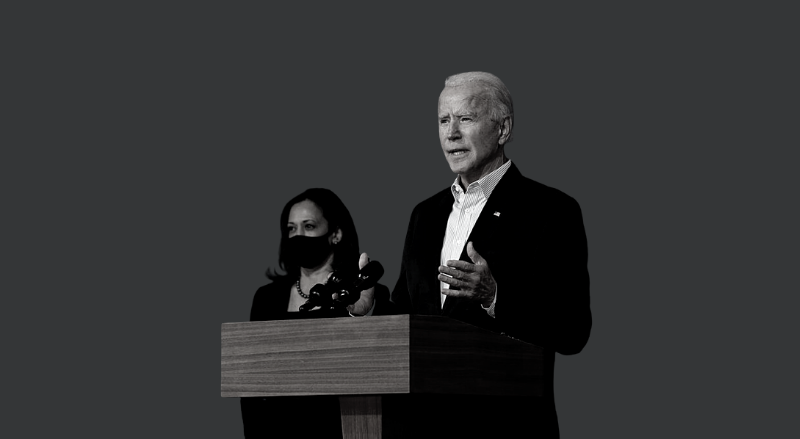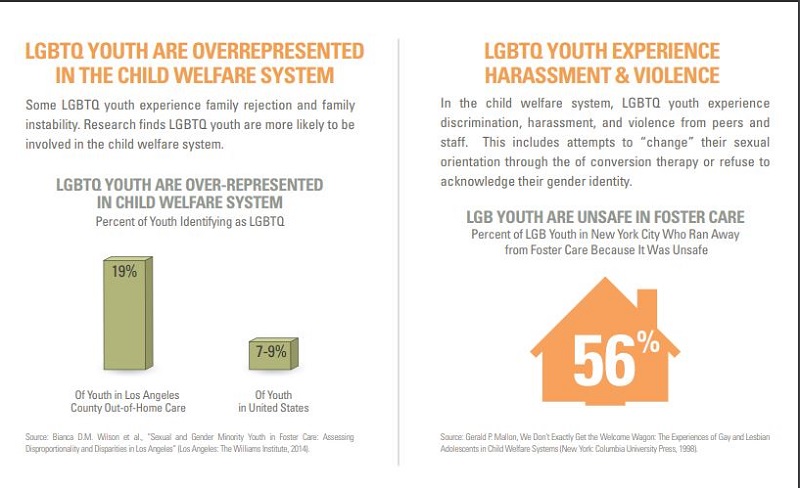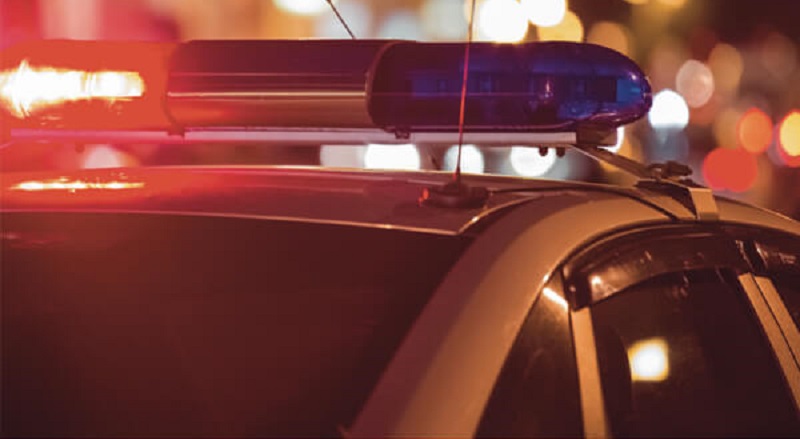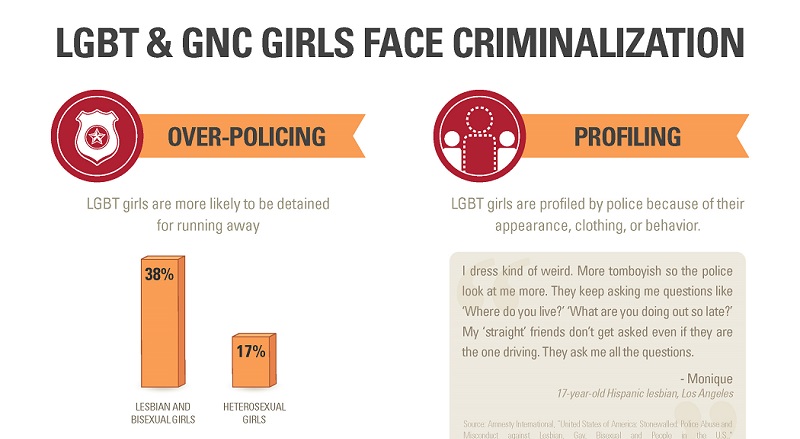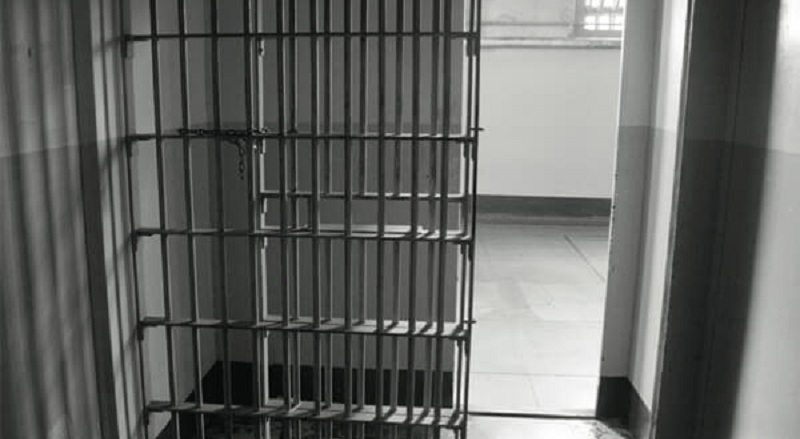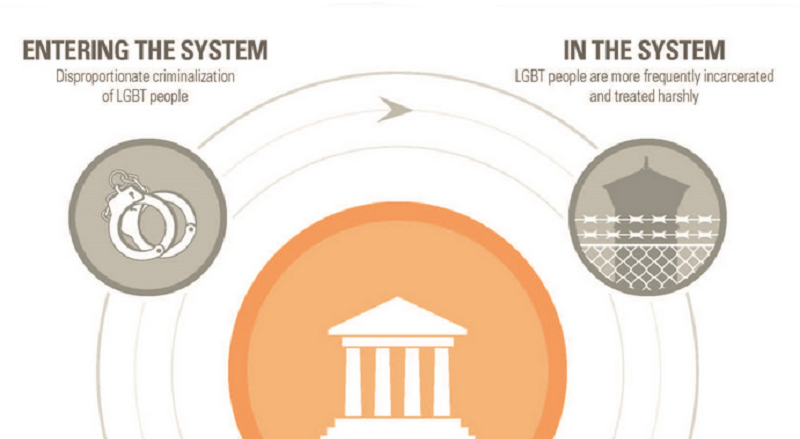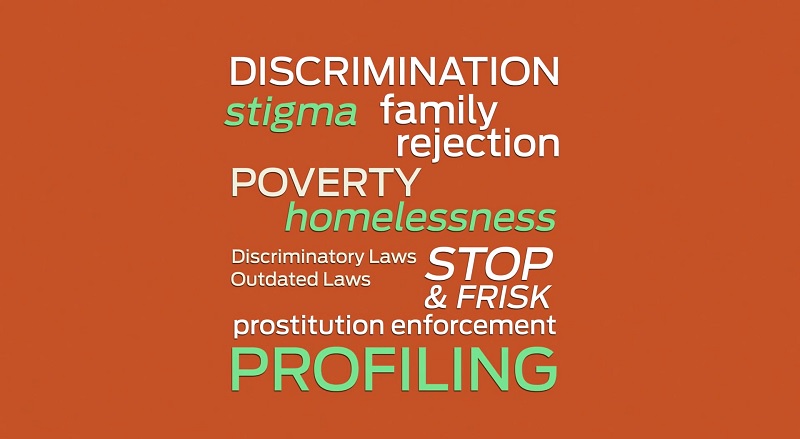LGBTQ people, especially LGBTQ people of color, are overrepresented in the criminal and juvenile justice systems. LGBTQ people are frequently targeted by and vulnerable to increased criminalization and abuse by law enforcement. They regularly experience assault and violence in correctional settings. And they face extraordinary challenges to rebuilding their lives upon release from the system, both because of their criminal record and because they are LGBTQ.
The “Unjust” series, released in partnership with leading LGBTQ and criminal justice reform organizations, highlights personal stories of LGBTQ people impacted by the criminal justice system and spotlights innovative programs, initiatives, and organizations from around the country.

